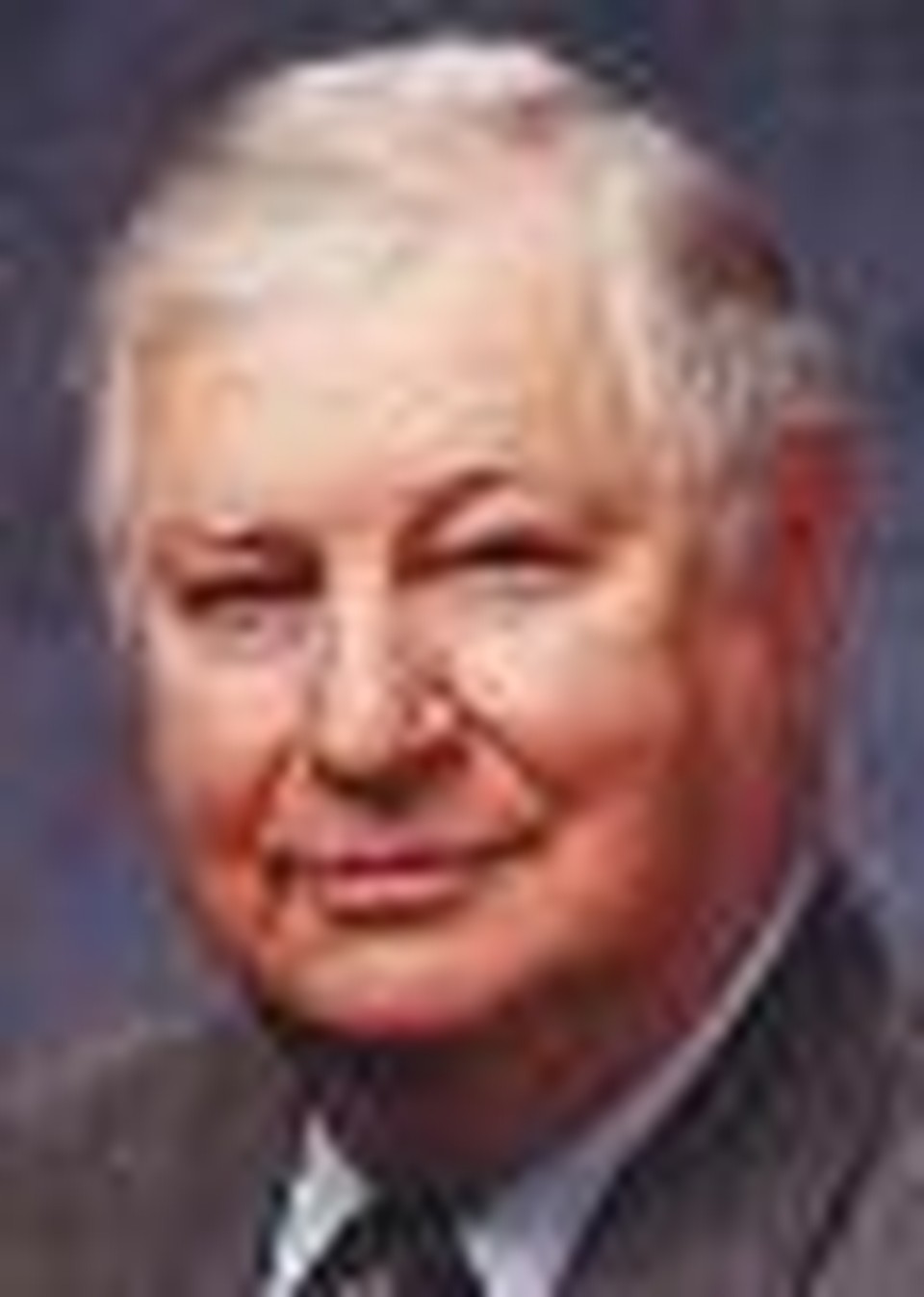Henry Blackaby: What the Spirit is Saying to the Churches

People today are hungry for God’s sure guidance in their churches. But how do they find it? One of the strongest prophetic voices to the church today, Henry Blackaby, helps Christians grasp God's pattern for strengthening their churches, rather than relying on human ideas and methods that leave God on the periphery. They’ll learn how to be sensitive individually and corporately to the effort of the Spirit, exploring the trustworthy principles by which the Lord longs to guide each congregation toward its own distinctive mission.
Crosswalk.com: Wanting to talk about your new book, What the Spirit is Saying to Churches, What is it that typically keeps church congregations from hearing what the Spirit has to say to them?
Blackaby: As I have observed it, and the Lord put his hand on me 50 years ago, so I have a long look at it - Primarily, if I were to evaluate it, it's that God's people have moved from a relationship to religion. So we faithfully practice religious activities, and we perfect it and keep it, but the relationship with God is like it was in Israel and Judah in Jesus time. They were not getting the message. But we think that we're in touch with God because we're doing religious activity, -- cannot remember the last time that God clearly spoke to us.
Crosswalk.com: You write about the Lord's examining presence in your book. What do you mean by this?
Blackaby: The phrase, "what the spirit is saying to churches," you can find in Chapters 2 & 3 of Revelation. Basically, he says several things in that. Number one, he comes to the church and speaks to the pastor, or the angel. He says, "I know your works." And before every church, he also gives something of a characteristic of his nature. Each one of them is different. For instance, Ephesus says that it's the one who holds the seven stars in his right hand, who walks in the midst of the seven. Well, each of them is different. So God comes to the church and each individual congregation. And he says, "I know your works." Then he describes them. And if there's anything that's not right, he immediately calls for repentance. As he comes to the end of every one of these, he says, "He who has an ear, let him hear what the Spirit is saying to the churches." God walks in the midst of the churches, and of course, if Christ is the head of every local church, then He is present and active and involved. He will speak to the churches. If they won't hear, He just says, then, "I'm sorry, I withdraw." We can go on practicing religion and never know that He has left. In too many of the churches, what we're doing and what we're planning to do, we can do without Him.
Crosswalk.com: What makes the world of churches respond to the Spirit?
Blackaby: I'm convinced that God's eternal purpose to change the world is through His churches. They're not an accident of history. They were planned and purposed by God. When He created in the beginning, He created a family, so every newborn would be in the family, could grow normally and then function fully. Every person born into his kingdom, God eternally purposed they should become a part of the spiritual family called a church. Then, through that congregation, there's no limit to what God can do to touch and change the world.
Crosswalk.com: You mentioned that church leaders are often (I couldn't understand this word) to respond to the Spirit's calling. Why do you think that is so?
Blackaby: Well, again, Biblically, that is true.When God was about to judge Israel in the Old Testament, it was the spiritual leaders who never got the message. And when He was about to judge Jerusalem and Judah, it was the spiritual leaders who never got the message. In Jesus' day, God sent His son, and it was the religious leaders who not only did not get the message, did not listen, but they crucified the Son of God. Every person God sent to them -- the prophets -- They killed almost every one of the prophets. And my heart says, "Human nature has not changed." I don't know that the spiritual leaders of our day would be any more sensitive. Some of them are, but too many are busily practicing religion and trying to be successful and make a name. But what the Spirit is saying to the churches which he does through the pastor, so often, they miss the message.
Crosswalk.com: You make it clear that this book is not primarily for church leaders, but for lay people. How do you suggest that church members can go about putting their convictions into action?
Blackaby: Biblically, God always works corporately through his people. In the New Testament, every member of a church is part of a local body of Christ, so each of them is vitally important. The eye needs to share with the rest of the body what it is seeing. It doesn't have the whole message for the church. The ear needs to say what it hears and the hand what it feels, and so on. God puts members in the body as it pleases Him. He even places the pastor in the body. He is not the Head. That position is occupied by the living Christ. So if each part functions in the body where God put them, then the whole body grows up into the head, and then there's no limit to what God can do through that body. But I think each part is critically important. You can't leave any part out. If someone says, "I don't have much talent," I would say, "It has nothing to do with your talent or your gifts." It has to do with where God placed you in the body and what the Head is saying through you which is uniquely important for the rest of the body to hear. So whether it is the Sunday School teacher or a deacon or just an ordinary teenager or college student, they can share. So they need to be involved corporately in as many opportune -- For instance, if you come to the prayer meeting and there's a prayer request, share what God is saying to you, don't share who is sick. Say, "This week God has really impacted me. Here's what I saw. I want to share with you and pray that our church, as a body, can get the message that I believe God is trying to say to us." So each person now vitally connected to the Lord, needs to be involved in the body life, and not just part of the body life. We often separate children into children's work, the youth into the youth time, the men into things, the women -- Don't do that. The body has to function corporately together.
Crosswalk.com: You've been a pastor for a long time. What have you learned, or what has God shown you about his will for churches during your time as a pastor?
Blackaby: The amazing thing is, everything I see in God's word about God and the ways of God and the activity of God, we've been experiencing as we pastored. I had to help the people know how to know when God is speaking to the body corporately. And so, I taught and taught and taught and taught from the Scriptures. But I didn't just teach the truth. I taught them how to practice the truth. Jesus said, "Teach them to practice everything I've commanded." What I see in the Scripture, I run it through my own life, and make sure that I am bearing witness to a relationship to the God that I see in the Scripture. Then I guide the people into that, and sure enough, God does exactly what He says He'll do. We've seen astounding things happen through a very little group of people. They say, "That's amazing," and I say, "No, that's just like God." This is what he said he would do. It has nothing to do with the size or the quality of the people, but the relationship they have with him. So as a pastor, I sought to bring each person, personally, and then as a group corporately, into a vital relationship with the Lord so we could hear, and then obey. But I had to teach them what it meant to obey, as well. We had to have one heart and one mind as we did it. But God said he would bring us to that. We saw that. I was a very, very happy pastor. My wife and I, both. All four boys felt called to pastor, having grown up in our home, which I think, is a kind of an affirmation of the truths that we were living out. Our daughter is a career missionary in Germany.
Crosswalk.com: How do you personally hear the Lord and what do you do to spend time with Him?
Blackaby: I take the Scriptures, and when Jesus said, "I'm going to give you another teacher, the Holy Spirit. He will teach you all things. He will guide you into all truths," and so on. So, I spend time in God's word, clearly expecting that the Spirit of God who is my teacher will use the word of God like a sword. Paul talks about the sword, which the Spirit wields, is the word of God. In John 16, Jesus said, "Now the Spirit never speaks on His own authority. Whatever He hears, that's what He speaks." So I know that when the Spirit of God takes the word of God and brings me to an incredible understanding of the truth about God, or about the Lord, He is doing so from the Father's purpose in my life. In other words, when the Father says, "Holy Spirit, here's what I'm about to do in Henry's life. Make sure he doesn't miss it. So when he comes to the Scriptures this morning, that's what I want you to do." I have watched that happen over the years. I used to get up very early, probably between four and four-thirty. I spend an unhurried time before God. The greatest thing that a person can do is spend an unhurried time before God, however early he needs to get up. Jesus got up way before dawn and spent time with the Father. The relationship to the Father and the Holy Spirit that rested on him and the Scriptures were very powerful in the life of Jesus. If that was so with him, it must be for us. I've found that over the years, that's exactly what He's done in my life.
Crosswalk.com: Your father was a layman and a church planter. What kind of influence and role model has he been to you? How has he influenced your life?
Blackaby: My father was probaboy the greatest single influence in my life. He was not a pastor. He was a layman. He was a businessman. He had been a deacon. Often his business took him to towns and villages where there was no church. He looked at the New Testament and realized that all the deacons preached. When they were scattered, they taught, and then started churches. My first memory of church was in a dance hall with my dad preaching, my mother playing the piano, my older brother ushering, and my younger brother and I were the congregation. Dad preached faithfully and taught us church discipline and we prayed. He lived out the New Testament Christianity. Our home was open for prayer meeting, for people to come, Native Indian people as well as business people. I watched churches develop. I watched his integrity with the Scriptures and prayer and his witness. The greatest soul winner I have ever known was my dad. He would bring business people into our home and say, "Mother and boys, would you pray? I'm going to talk to my friend about the Lord." Maybe an hour later he would come out, and the man would be weeping, and he would say, "He has something to tell you." He would bear witness that he had just put his faith in Christ. That had a profound influence on my life. Because of that, I sought to live out spiritual integrity in my life before my family. As a father of five, my prayer was, "Father, help me to so live before my children that all of them would choose to want to serve the God they saw their dad serve."
Crosswalk.com: That's a wonderful testament.
Blackaby: I have a great heritage from my father.
Crosswalk.com: What motivated you to write this book now, in this point in history, at this time?
Blackaby: The book as it's coming out from Multnomah really is a reprint and revision of the very first thing I did. God had done such a huge work in the little church. The original subtitle was, "From Disbandonment to a Mighty Ministry: A Church Discovers Its Future." We took a little group of ten people who had called a meeting to disband the church because they were so discouraged. They had been without a pastor for about five years. I said I would come. I went from Los Angeles to Saskatoon, Saskatchewan. I was there twelve years, and out of that twelve years, from that little group, we started thirty-eight additional new congregations, baptized a hundred and eighty college students, saw about a hundred feel called into the ministry and started a whole theological college just to train those being called. I felt that what God taught us about how He works in the life of any congregation, when the church listens to what God is trying to say to them, that can happen to any church, any size, anywhere. I have sensed that it is a very needed one today. Some of our churches are in great disarray, not knowing who they are, what they are, what they're supposed to be doing. They're practicing religion but without the power of God. They know the power of God is missing, but they don't know how to get back. I think this little book has a tremendous potential for touching in a very simple, clear, illustrated, but Biblical way how a church experiences God when they listen to what the Spirit is saying to them.
Originally published June 23, 2003.





